Reflexology, while not a cure for chronic kidney disease (CKD), can play a role in managing some symptoms and improving overall well-being. This complementary therapy involves applying pressure to specific points on the feet, hands, or ears, which can stimulate different organs, including the kidneys, to heal. By taking a proactive approach to your health care, starting with mindfulness, you can feel more in control and empowered.
Chronic kidney disease (CKD) affects a significant portion of the global population. Worldwide, it’s estimated that over 10% of people, or more than 800 million individuals, have CKD.
In the United States, approximately 1 in 7 adults, or about 35.5 million people, are affected by CKD, and up to 90% of this population isn’t aware of their kidney health problem. Approximately 1 in 3 adults with diabetes and 1 in 5 adults with high blood pressure have kidney disease.
The early signs of kidney disease can be subtle, and many people may not notice any symptoms until the condition has progressed. However, some early warning signs include:
- Fatigue – Feeling unusually tired or weak, even after a good night’s sleep, can indicate that your kidneys aren’t filtering waste properly.
- Changes in Urination – You may notice:
- Increased or decreased frequency of urination
- Dark-colored urine or foamy urine, which could indicate protein in the urine
- Blood in the urine
- Pain or discomfort while urinating
- Swelling (Edema)—When the kidneys can’t remove excess fluid, it can lead to swelling in the ankles, feet, or legs. Swelling may also appear around the eyes or in the hands.
- Shortness of Breath – Kidney disease can lead to fluid buildup in the lungs, causing difficulty breathing or shortness of breath, especially when lying down.
- Persistent Itching – This can be caused by the buildup of waste products in the body, a condition known as uremia.
- Nausea and Vomiting – Kidney disease can cause a buildup of waste in the body, which may lead to digestive issues like nausea, vomiting, and loss of appetite.
- Back Pain – Pain in the lower back, near the kidneys (just below the ribs), may also be an early sign, especially if it is persistent.
- High Blood Pressure – Kidneys play a crucial role in regulating blood pressure. If kidney function declines, blood pressure may rise, leading to hypertension.
- Metallic Taste in the Mouth or Ammonia Breath—A buildup of toxins from kidney dysfunction can lead to a metallic taste or foul-smelling breath.
You can start today to support your kidneys and it all begins with mindfulness. Even small changes can significantly impact your health over time! The improvement list is long and intimidating, but starting with one or two suggestions will improve your overall health and lower your risk of kidney disease.
Preventing kidney disease involves adopting healthy lifestyle habits that support your kidney function. Here are some things you can do today to reduce your risk of developing kidney disease:
1. Stay Hydrated
Drink plenty of water throughout the day to help your kidneys flush out waste and toxins. Aim for around 8 cups (2 liters or half your weight in ounces) of water daily, but this can vary depending on your activity level and climate.
2. Maintain a Healthy Diet
- Limit Salt Intake: Too much sodium can increase blood pressure and strain kidneys. Try to limit processed and canned foods and cook with less salt.
- Eat More Fruits and Vegetables: These foods are rich in vitamins and minerals, and help reduce inflammation and stress on your kidneys.
- Limit High-Protein Foods: Excessive protein can overwork your kidneys. Be mindful of how much red meat, poultry, and high-protein foods, including cheese, you consume.
- Watch Your Blood Sugar: If you have diabetes, keeping your blood sugar levels in check can help prevent kidney damage. Eating balanced meals and exercising can help manage glucose levels.
3. Exercise Regularly
Regular physical activity helps maintain a healthy weight, reduce blood pressure, and regulate blood sugar levels, essential for kidney health. Aim for at least 30 minutes of moderate exercise most days of the week.
4. Manage Your Blood Pressure
High blood pressure is one of the leading causes of kidney disease. To prevent kidney disease, keep your blood pressure within a healthy range (typically below 130/80 mmHg) by reducing salt intake, exercising, maintaining a healthy weight, and, if needed, taking prescribed medication.
5. Quit Smoking
Smoking damages blood vessels, which reduces the blood flow to your kidneys. It also increases your risk of high blood pressure and other conditions that can contribute to kidney disease.
6. Limit Alcohol Consumption
Drinking excessive amounts of alcohol can raise your blood pressure and cause dehydration, both of which can harm your kidneys. Stick to moderate drinking (up to one drink per day for women and two for men).
7. Monitor Your Kidney Function Regularly
If you have risk factors for kidney disease (e.g., diabetes, high blood pressure, family history of kidney disease), ask your healthcare provider to check your kidney function with a blood or urine test. Early detection can make a big difference in managing kidney health.
8. Avoid Overuse of Painkillers
Nonsteroidal anti-inflammatory drugs (NSAIDs), like ibuprofen and aspirin, can damage the kidneys if used frequently or in high doses. Use them sparingly and only when necessary.
9. Control Your Weight
Being overweight increases your risk of high blood pressure, diabetes, and heart disease, all of which can lead to kidney problems. A balanced diet and regular exercise can help you maintain a healthy weight.
10. Reduce Stress
Chronic Stress can contribute to high blood pressure and inflammation, which harm kidney health. Try stress-management techniques like meditation, deep breathing, yoga, or spending time in nature.
11. Managing Your Stress: Make “me time” daily and focus on letting go what you do not need to store in your head.
12. Try holistic and complementary healing methods, such as reflexology, Reiki, and chakra balance, to calm and aid overall healing.
How Reflexology Support Kidney Health:
Reflexology supports kidney health by stimulating specific reflex points on the feet, hands, and ears that correspond to the kidneys and related organs. Here’s how it helps:
- Improves Circulation – Reflexology enhances blood flow to the kidneys, helping them filter waste more efficiently.
- Supports Detoxification—Reflexology may encourage the elimination of toxins and reduce the burden on the kidneys by stimulating kidney reflex points.
- Reduces Stress – Stress can impact kidney function. Reflexology promotes relaxation, reducing stress-related strain on the kidneys.
- Balances Energy Flow – In traditional Chinese medicine, kidney energy (Qi) is vital for overall health. Reflexology may help balance this energy.
- Eases Water Retention – Stimulating the kidney and bladder reflex points can help reduce fluid retention and swelling.
Incorporating Reflexology into Your Wellness Program
- Regular sessions with a certified reflexologist
- Practicing self-reflexology at home by massaging key reflex points (checking out HealingPlaceEnergySchool)
- Pairing reflexology with a healthy lifestyle, including an anti-inflammatory diet and stress management
Reflexology can serve as a supportive tool to enhance overall well-being and alleviate discomfort associated with kidney pain.
Get Kidney Health Support
Talk to your healthcare provider if you have questions about developing a personalized pain management plan that addresses your arthritis pain needs or about reflexology therapy. Reflexology does not replace traditional medicine but can complement your current wellness plan. Have Reflexology questions? email us: [email protected]
 About the Writer, Teacher, and Film Maker
About the Writer, Teacher, and Film Maker
Helen Chin Lui is a Certified Reflexologist, Certified Energy Medicine, and Reiki Practitioner. She owns the Healing Place LLC and Healing Place Energy School LLC in Medfield, MA. She specializes in helping adults and children find long-lasting relief from chronic pain and digestive issues and healing hormonal imbalances naturally.
 Healing Place LLC
Healing Place LLC
Healing Place LLC specializes in helping people of all ages break the pain cycles of chronic pain and chronic digestive problems and balances hormones naturally. If you would like to learn how Reflexology can support your health, please schedule a FREE consultation on the HealingPlaceMedfield.com website or call us at (508) 359-6463
 Healing Place Energy School
Healing Place Energy School
Learn more in-depth hand and foot reflexology from the privacy of your home by going to HealingPlaceEnergySchool. We offer Reflexology, chakra, self-care, meditation, and reiki courses.
Helen Chin Lui’s Books
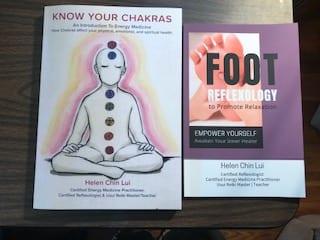 If you would like to learn more about personal energy flow, or Reflexology techniques, get Helen’s Books Know Your Chakras: Introduction to Energy Medicine or Foot Reflexology to Promote Relaxation.
If you would like to learn more about personal energy flow, or Reflexology techniques, get Helen’s Books Know Your Chakras: Introduction to Energy Medicine or Foot Reflexology to Promote Relaxation.
Get Helen’s Free Digestive Health E-Booklet
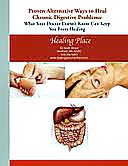 For Helen’s free report “Proven Alternative Ways to Heal Common Chronic Digestive Problems: What Your Doctor Doesn’t Know Can Keep You From Healing”
For Helen’s free report “Proven Alternative Ways to Heal Common Chronic Digestive Problems: What Your Doctor Doesn’t Know Can Keep You From Healing”

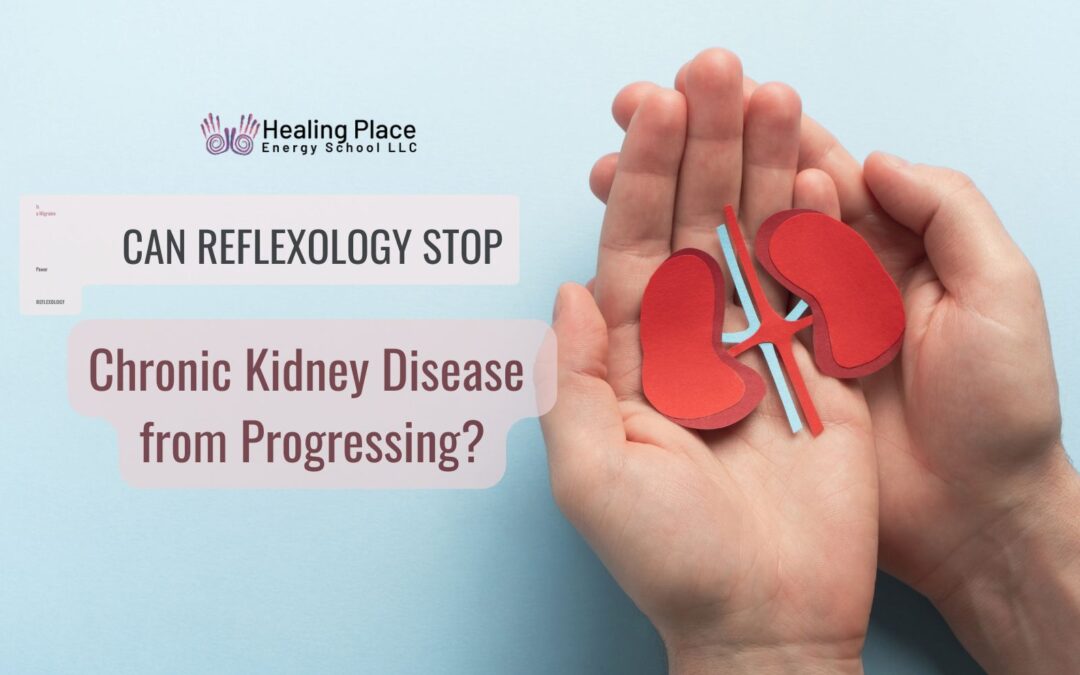
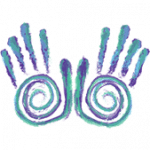 Healing Place LLC
Healing Place LLC Healing Place Energy School
Healing Place Energy School


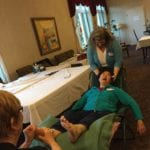

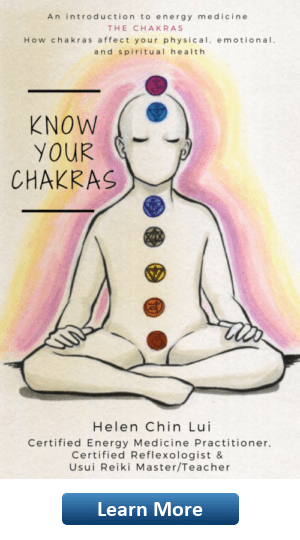
Recent Comments